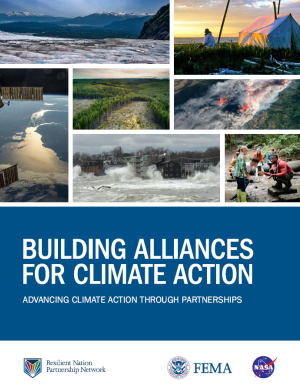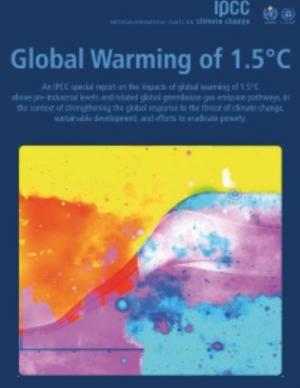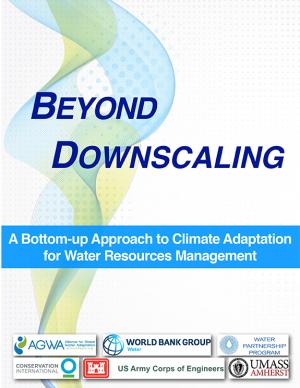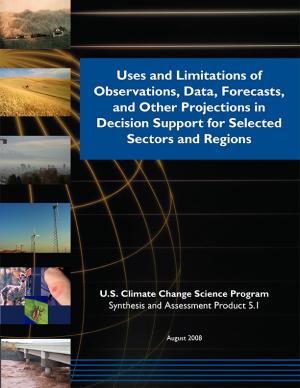Access a range of climate-related reports issued by government agencies and scientific organizations. Browse the reports listed below, or filter by scope, content, or focus in the boxes above. To expand your results, click the Clear Filters link.
To become climate resilient requires collective action. Our efforts must take a Whole-of-Government and Whole Community approach.
The Resilient Nation Partnership Network is working to address this through partnership. The result of our collective action is this Building Alliances for Climate Action resource. It is the work of many organizations and individuals, including federal representatives, faith leaders, community-based organizations, mayors and many more. At a time when many are searching for direction on how to address the climate crisis, this resource represents a unifying voice, helping guide the Whole Community forward
The Working Group II contribution to the IPCC Sixth Assessment Report assesses the impacts of climate change, looking at ecosystems, biodiversity, and human communities at global and regional levels. It also reviews vulnerabilities and the capacities and limits of the natural world and human societies to adapt to climate change.
This is the FY22 edition of the U.S. Gllobal Change Research Program's annual report to Congress mandated by the the Global Change Research Act. The report provides an overview of the Program’s progress in delivering on its strategic goals as well as a summary of agency expenditures under USGCRP’s budget crosscut.
This special report from the Intergovernmental Panel on Climate change describes the impacts of global warming of 1.5 °C above pre-industrial levels. The report also describes potential global greenhouse gas emission pathways, in the context of strengthening the global response to the threat of climate change, sustainable development, and efforts to eradicate poverty.
As incomes rise and populations grow, especially in the world’s hotter regions, the use of air conditioners is becoming increasingly common. In fact, the use of air conditioners and electric fans already accounts for about a fifth of the total electricity in buildings around the world–or 10 percent of all global electricity consumption. Over the next three decades, the use of ACs is set to soar, becoming one of the top drivers of global electricity demand. This new analysis by the International Energy Agency shows how new standards can help the world avoid facing such a “cold crunch” by helping improve efficiency while also staying cool.
Climate change adds uncertainty to already complex global water challenges. Though no standard method has been adopted yet by the World Bank, common practice uses downscaled precipitation and temperature projections from Global Climate Models (GCMs) as input to hydrologic models. While this has been useful in some applications, they often give too wide a dispersion of readings to provide useful guidance for site-specific water resources management and infrastructure planning and design. Rather than design for an uncertain situation selected a priori, the so-called “bottom-up” approaches explore the sensitivity of a chosen project to the effects of uncertainties caused by climate change. Supported by the Water Partnership Program, this book summarizes alternatives explored by a group of organizations that belong to the Alliance for Global Water Adaptation (AGWA), to provide practitioners with the tools to adapt to the realities of climate change by following a decision-making process that incorporates bottom-up thinking.
This Synthesis Report summarizes the Fifth Assessment Report (AR5) of the Intergovernmental Panel on Climate Change (IPCC). This report distills, synthesizes, and integrates the key findings of the three IPCC Working Group contributions—The Physical Science Basis; Impacts, Adaptation, and Vulnerability; and Mitigation of Climate Change—to the AR5 for the benefit of decision makers in government, the private sector, and the general public. The report also includes findings from two Special Reports released in 2011: Renewable Energy Sources and Climate Change Mitigation and Managing the Risks of Extreme Events and Disasters to Advance Climate Change Adaptation. The Synthesis Report confirms that climate change caused by human activities is having impacts on ecosystems and human well-being across the U.S. and around the world.
The Intergovernmental Panel on Climate Change (IPCC) Working Group II's contribution to the Fifth Assessment Report (AR5) relates to climate impacts, adaptation, and vulnerability. A Summary for Policymakers and the underlying scientific and technical assessment are also available.
This special report assesses the scientific literature on the potential role of renewable energy in the mitigation of climate change for policymakers, the private sector, academic researchers, and civil society. It covers six renewable energy sources—bioenergy, direct solar energy, geothermal energy, hydropower, ocean energy and wind energy—as well as their integration into present and future energy systems. It considers the environmental and social consequences associated with the deployment of these technologies, and presents strategies to overcome technical as well as non-technical obstacles to their application and diffusion.
Scientific information about Earth's climate, water, air, land, and other dynamic processes is essential for our understanding of humankind's relationship to our natural resources and our environment. This Synthesis and Assessment Product, developed as part of the U.S. Climate Change Science Program, examines contributions of Earth science information in decision support activities and their relationship to climate change science.













